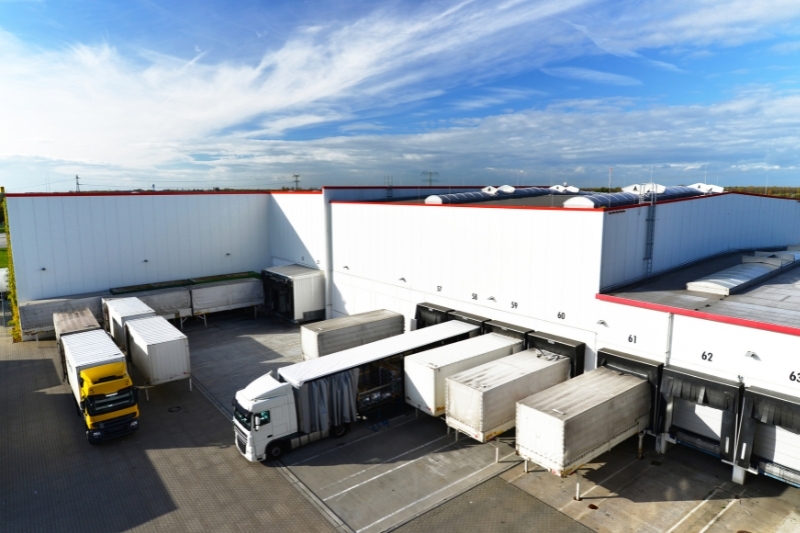The UK’s truck industry has been a vital cog in the nation’s economic machinery for decades. As the lifeblood of our transportation network, this sector plays a crucial role in facilitating the movement of goods, powering industries, and driving economic growth. From the bustling highways to the intricate supply chains, the UK’s truck industry is a dynamic and ever-evolving landscape, constantly adapting to the changing needs of businesses and consumers alike.
In this comprehensive article, we will delve into the intricacies of the UK truck industry, exploring its economic impact, growth trends, key players, and the challenges it faces. We’ll also examine the technological advancements transforming this sector and the opportunities they present for businesses and individuals alike. Join us as we uncover the driving force behind the UK’s economic prosperity.
The Economic Impact of the Truck Industry in the UK
The truck industry in the UK is a significant contributor to the nation’s economic prosperity. According to recent industry reports, the sector generates over £100 billion in annual revenue and employs more than 2.5 million people across various roles, from truck drivers and mechanics to logistics coordinators and supply chain managers.
Beyond its direct economic impact, the truck industry plays a vital role in supporting the operations of other industries. From the transportation of raw materials to the delivery of finished goods, the truck industry is the backbone of countless businesses, enabling them to function efficiently and effectively. This interconnectedness means that the success of the truck industry has a ripple effect, boosting productivity, creating jobs, and driving economic growth across the country.
Moreover, the truck industry is a significant source of tax revenue for the government, with businesses and individuals working in the sector contributing billions in taxes each year. This revenue helps fund critical public services, infrastructure projects, and social welfare programs, further strengthening the UK’s economic resilience.
Growth Trends in the UK Truck Industry
The UK truck industry has been on a steady growth trajectory in recent years, driven by a variety of factors. One of the key drivers has been the rise in e-commerce and the increasing demand for rapid, reliable delivery services. As more consumers turn to online shopping, the need for efficient last-mile delivery has surged, leading to a surge in the number of trucks on the road and the expansion of logistics operations.
Another factor contributing to the industry’s growth is the ongoing urbanization of the UK. As more people flock to cities, the demand for goods and services has increased, placing greater pressure on the truck industry to meet the needs of these densely populated areas. This has spurred investment in advanced logistics solutions, such as urban distribution hubs and innovative delivery methods, to optimize the movement of goods within and between cities.
Furthermore, the UK’s position as a global trading hub has fueled the growth of the truck industry. With the country’s strategic location and well-developed transportation infrastructure, the UK has become a key gateway for international trade, driving the demand for cross-border freight transportation and the services of the truck industry.
Key Players in the UK Truck Industry
The UK truck industry is home to a diverse array of players, ranging from multinational corporations to family-owned businesses. Some of the key players in this sector include:
- Major Truck Manufacturers: Companies like Volvo, Scania, and DAF Trucks have a strong presence in the UK, supplying a significant portion of the trucks used by logistics and transportation companies.
- Logistics and Transportation Firms: Household names such as DHL, FedEx, and UPS operate extensive truck fleets and logistics networks across the UK, providing a wide range of freight and delivery services.
- Independent Truck Operators: Smaller, independent truck operators play a crucial role in the industry, offering specialized services and catering to the needs of local and regional businesses.
- Truck Rental and Leasing Companies: Firms like Ryder and Northgate Vehicle Hire provide truck rental and leasing solutions, enabling businesses to maintain flexible and cost-effective transportation solutions.
- Technology and Software Providers: Companies developing innovative fleet management software, telematics systems, and other technological solutions are increasingly shaping the future of the UK truck industry.
These key players, along with a vast network of suppliers, maintenance providers, and support services, form the backbone of the UK’s thriving truck industry.
Government Regulations and Policies Affecting the UK Truck Industry
The UK truck industry operates within a complex regulatory landscape, with various government policies and regulations influencing its operations and growth. Some of the key areas of government involvement include:
- Environmental Regulations: The UK government has implemented stricter emissions standards and initiatives to promote the adoption of eco-friendly vehicles, such as electric and hybrid trucks, to reduce the industry’s environmental impact.
- Safety and Compliance: Strict regulations govern the safety and compliance of truck operations, including driver licensing, vehicle maintenance, and the enforcement of working hours and rest periods.
- Infrastructure Investments: The government has made significant investments in the UK’s road network and transportation infrastructure, ensuring the efficient movement of goods and the smooth operation of the truck industry.
- Tax Incentives and Subsidies: The government has introduced various tax incentives and subsidies to encourage businesses to invest in new, more efficient truck technologies and fleet upgrades.
- Trade Policies: International trade agreements and policies, such as those related to customs and tariffs, can have a significant impact on the cross-border movement of goods and the operations of the UK truck industry.
These government regulations and policies play a crucial role in shaping the landscape of the UK truck industry, driving innovation, sustainability, and the overall competitiveness of the sector.
Challenges Faced by the UK Truck Industry
While the UK truck industry has experienced remarkable growth, it also faces a number of challenges that must be addressed to ensure its continued success. Some of the key challenges include:
- Driver Shortage: The industry has faced a persistent shortage of qualified truck drivers, driven by factors such as an aging workforce, competition from other industries, and the perceived lack of work-life balance in the profession.
- Infrastructure Constraints: The UK’s aging road network and the increasing congestion in urban areas can lead to delays, higher operating costs, and reduced efficiency for truck operators.
- Sustainability and Emissions Regulations: The need to comply with stricter environmental regulations and reduce the industry’s carbon footprint has put pressure on truck operators to invest in more eco-friendly vehicles and technologies.
- Technological Disruption: The rapid pace of technological change, including the emergence of autonomous vehicles and advanced logistics software, has created both opportunities and challenges for the industry as it adapts to these new developments.
- Economic Uncertainties: Factors such as Brexit, global trade tensions, and the ongoing impact of the COVID-19 pandemic have introduced economic uncertainties that can affect the truck industry’s growth and profitability.
Addressing these challenges will require a collaborative effort between industry stakeholders, policymakers, and the government to develop innovative solutions and ensure the continued prosperity of the UK truck industry.
Technological Advancements in the UK Truck Industry
The UK truck industry is at the forefront of technological innovation, with a range of cutting-edge advancements transforming the sector. Some of the key technological developments include:
- Autonomous and Connected Vehicles: The development of self-driving trucks and advanced driver assistance systems is expected to enhance safety, improve fuel efficiency, and optimize logistics operations.
- Alternative Fuel Technologies: The increasing adoption of electric, hybrid, and hydrogen-powered trucks is helping the industry reduce its environmental impact and meet sustainability goals.
- Telematics and Fleet Management Solutions: Sophisticated telematics systems and fleet management software are enabling truck operators to monitor vehicle performance, optimize routing, and improve overall efficiency.
- Digital Logistics Platforms: Online marketplaces and digital freight-matching platforms are revolutionizing the way goods are transported, connecting shippers with carriers and streamlining the logistics process.
- Predictive Maintenance: Advanced analytics and machine learning are being used to predict maintenance needs and schedule proactive servicing, reducing downtime and maintenance costs for truck fleets.
These technological advancements are not only improving the operational efficiency of the UK truck industry but also paving the way for a more sustainable, data-driven, and customer-centric future.
Opportunities for Business in the UK Truck Industry
The UK truck industry presents a wealth of opportunities for businesses across various sectors. Some of the key areas of opportunity include:
- Fleet Management and Logistics Services: Providing comprehensive fleet management solutions, including vehicle maintenance, driver training, and route optimization, can be a lucrative business venture.
- Truck Rental and Leasing: Offering flexible truck rental and leasing options to businesses can be a profitable business model, particularly as companies seek to optimize their transportation needs.
- Aftermarket Parts and Accessories: The demand for high-quality truck parts, accessories, and customization services continues to grow, presenting opportunities for specialized businesses.
- Truck Dealerships and Sales: Establishing successful truck dealerships and sales channels can capitalize on the steady demand for new and used commercial vehicles.
- Technological Solutions: Developing innovative software, hardware, and services that cater to the truck industry’s evolving technological needs can lead to lucrative business opportunities.
If you’re interested in exploring the vast potential of the UK truck industry, I’d be happy to discuss how you can leverage your expertise and resources to capitalize on the numerous opportunities available. Feel free to reach out to me to schedule a consultation and explore the possibilities together.
Future Outlook of the UK Truck Industry
The future of the UK truck industry looks bright, with a range of factors pointing to continued growth and evolution. As the economy continues to recover and adapt to the post-pandemic landscape, the demand for efficient and reliable transportation services is expected to remain strong.
Technological advancements, such as the widespread adoption of electric and autonomous vehicles, will transform the industry, improving its environmental sustainability and operational efficiency. Additionally, the growing focus on supply chain resilience and the need for agile logistics solutions will drive further investment and innovation in the sector.
Government policies and regulations aimed at promoting sustainability, safety, and infrastructure development will also shape the future of the UK truck industry. As the industry navigates these changes, we can anticipate a more eco-friendly, data-driven, and customer-centric landscape that will continue to play a vital role in the country’s economic prosperity.
Conclusion
The UK truck industry is a driving force behind the nation’s economic growth, facilitating the movement of goods, supporting countless businesses, and contributing to the overall prosperity of the country. As we’ve explored in this comprehensive article, the industry faces a range of challenges, from driver shortages to technological disruption, but it also presents a wealth of opportunities for businesses and individuals alike.





